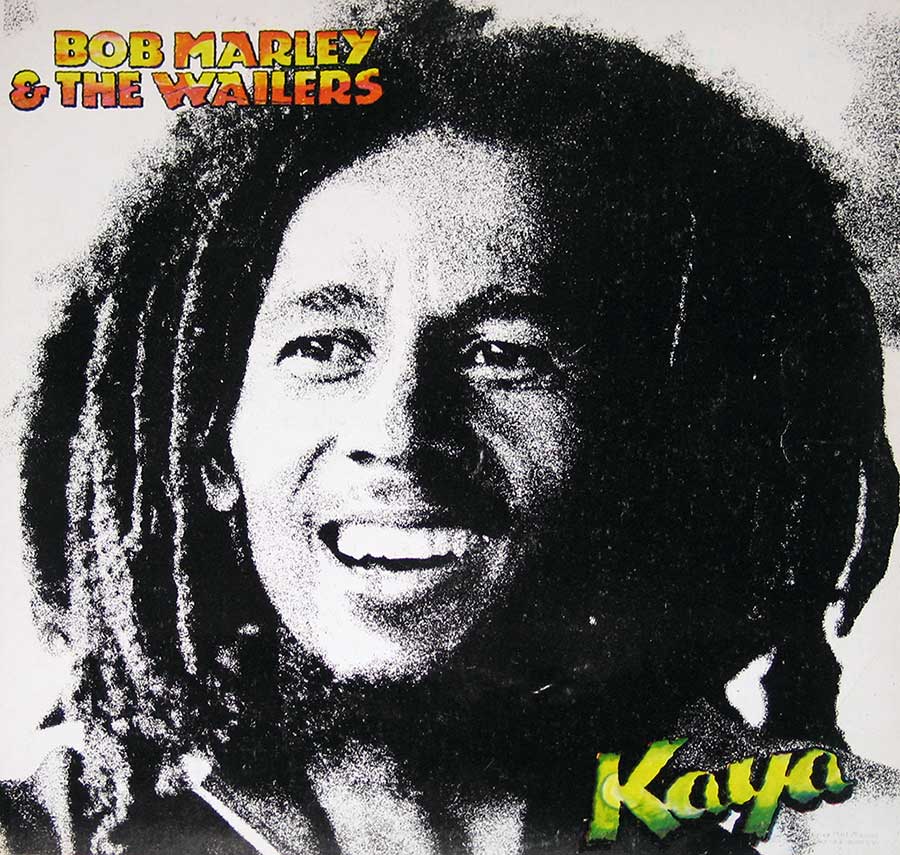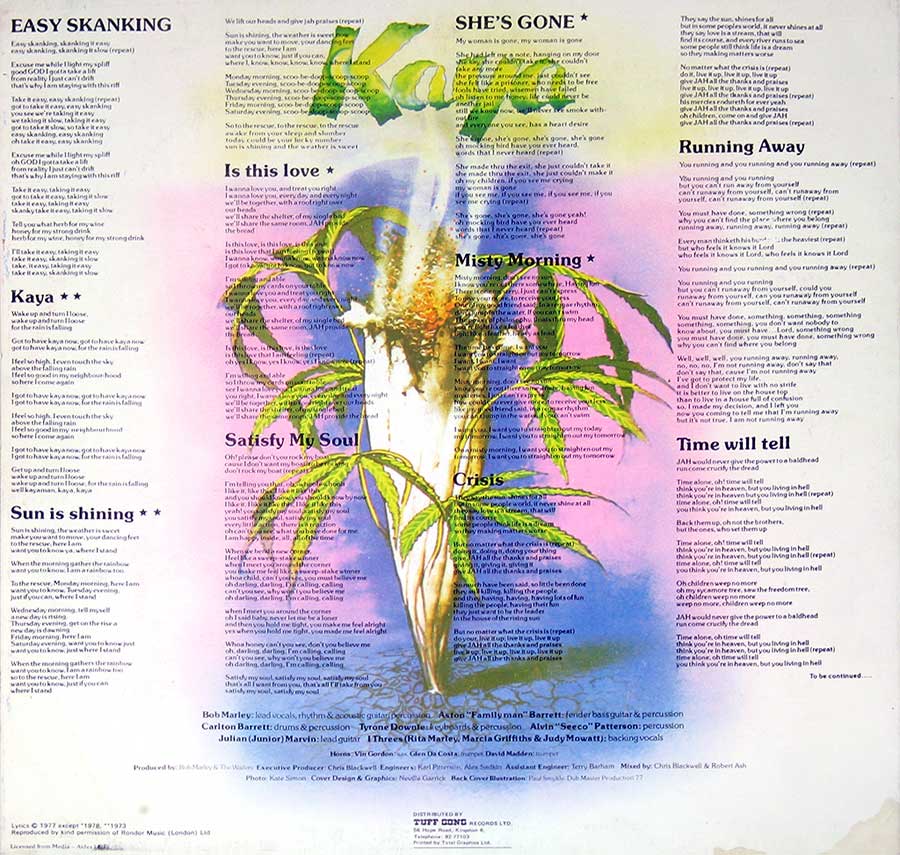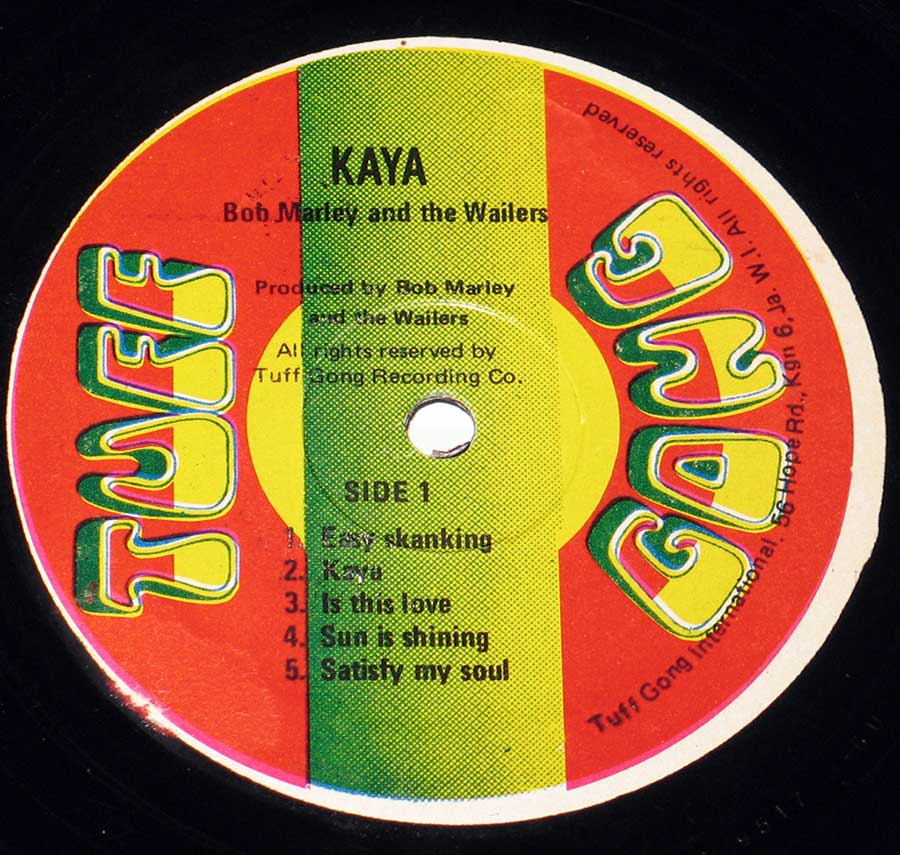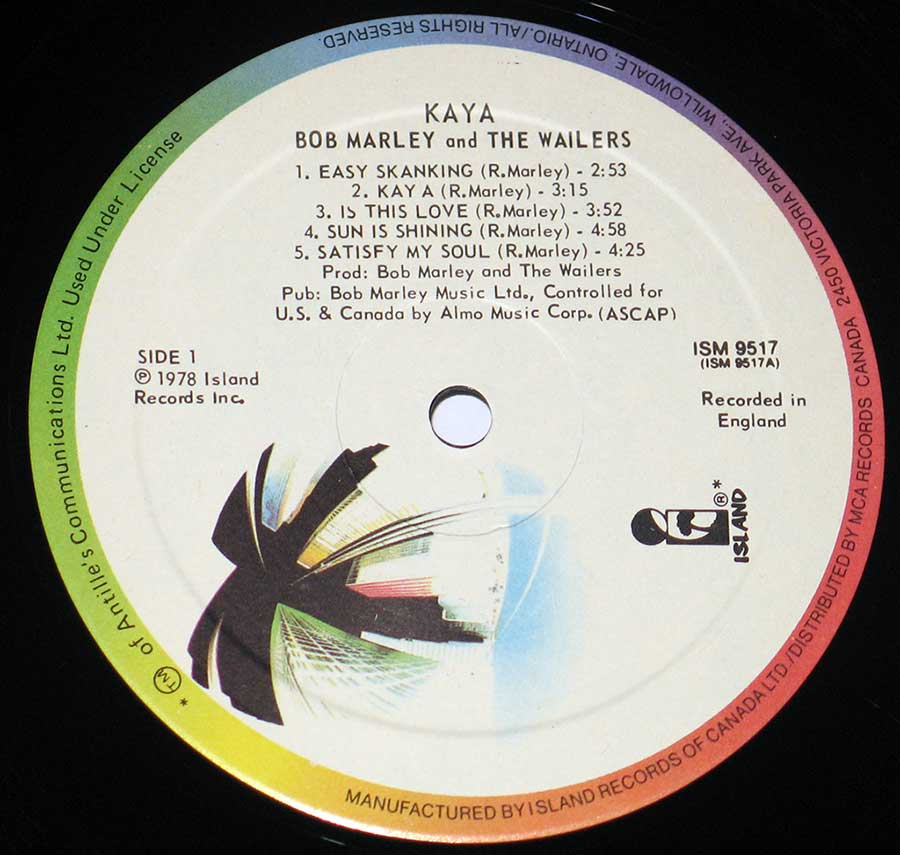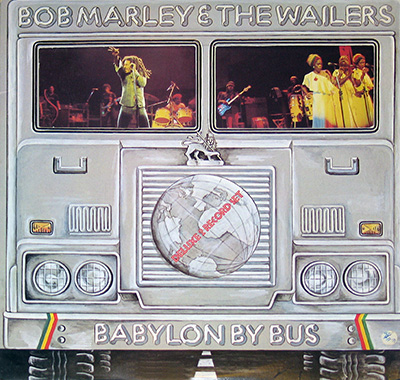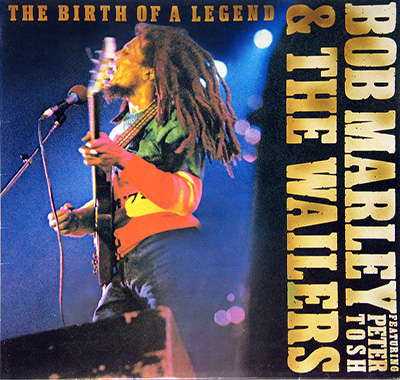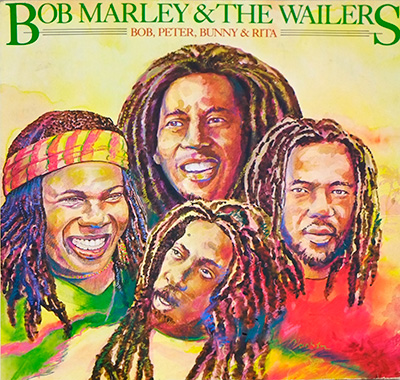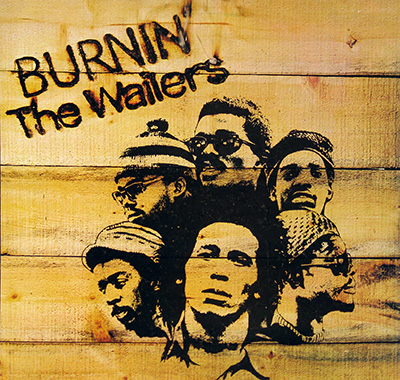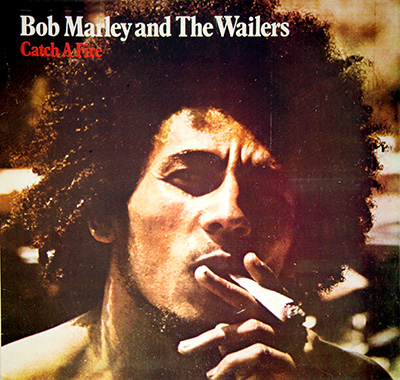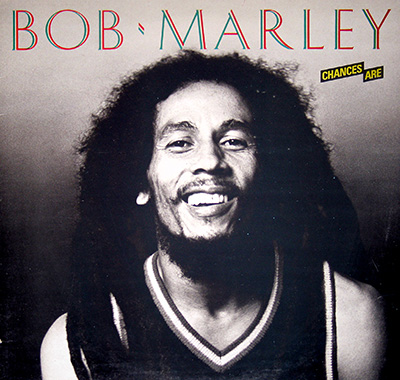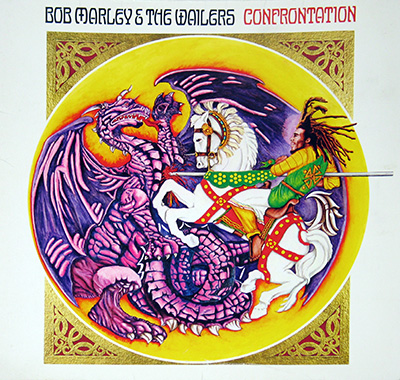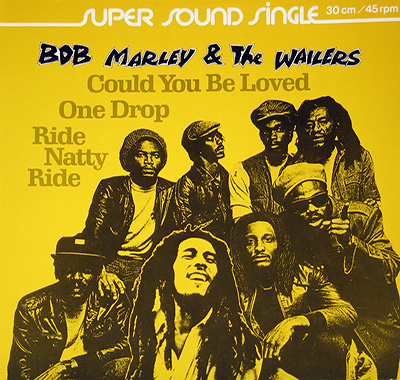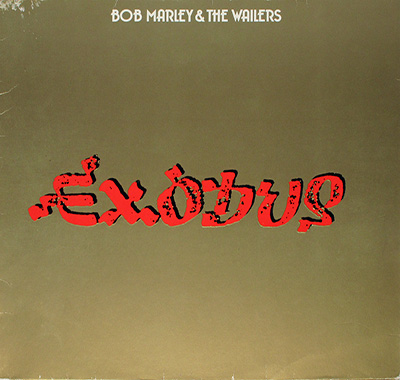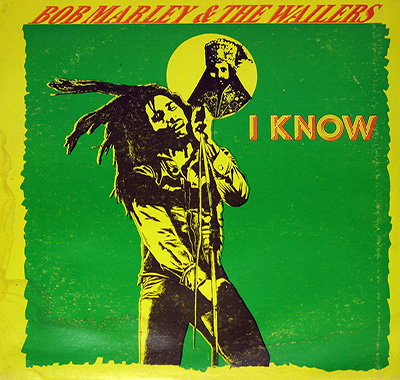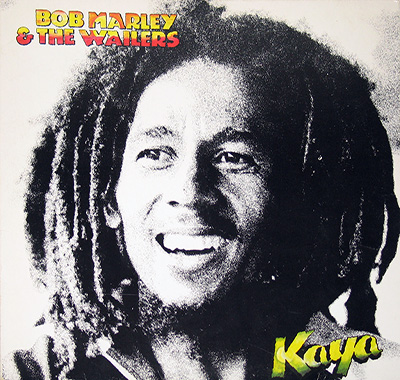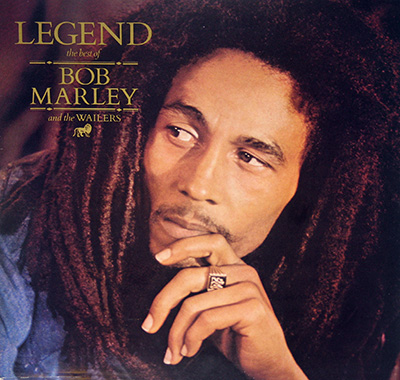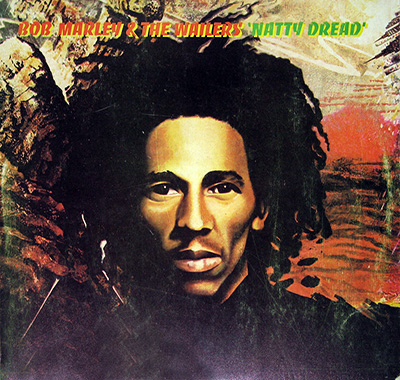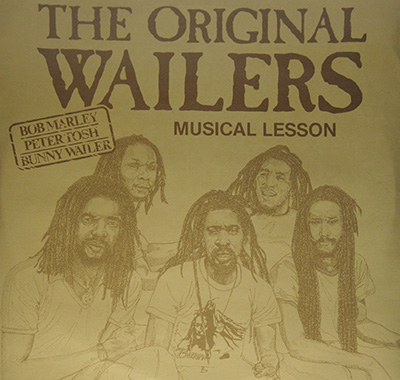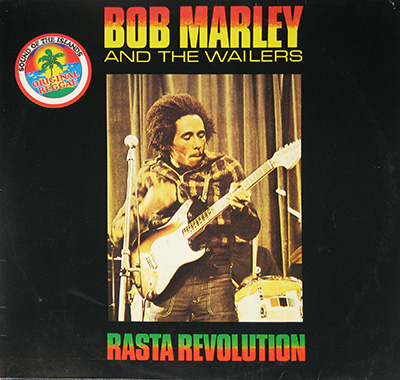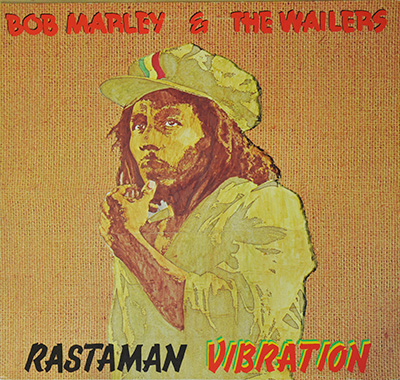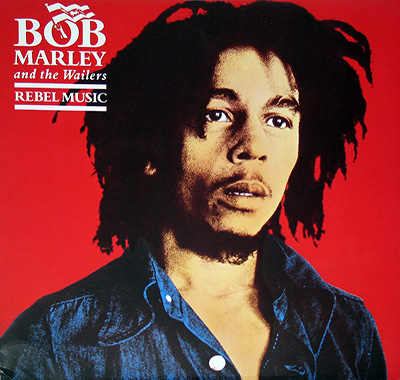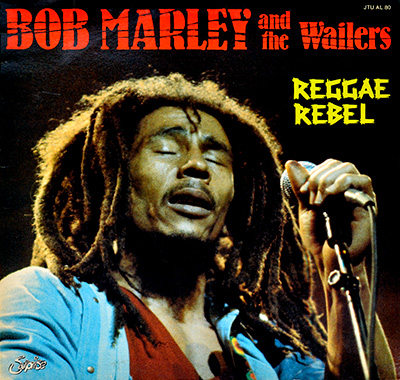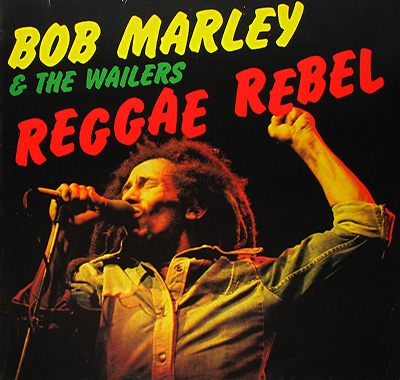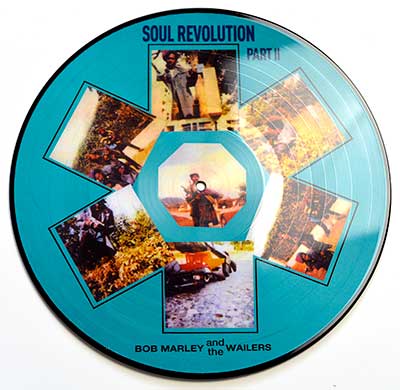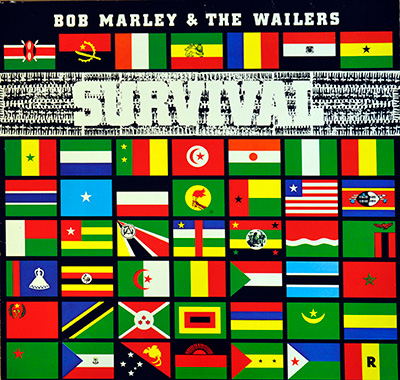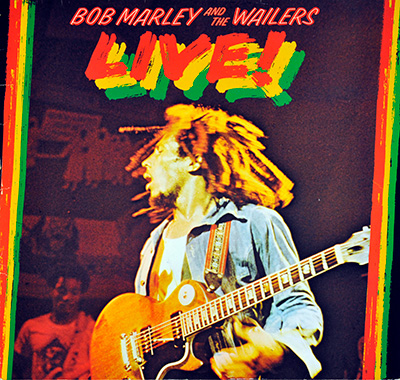Somewhere on the hot, salty shores of Jamaica in the 1970s, an album crackled into existence that’s more manifesto than music—"Kaya", released by Bob Marley & The Wailers under the legendary Tuff Gong label, isn’t just a 12" vinyl spinning grooves in wax. This record is the essence of rebellion, a soundscape shaped by hardship, love, and that relentless Jamaican sun. This wasn’t about moving units; it was about moving hearts. You don’t just play "Kaya"; you surrender to it.
In 1978 Jamaica, the soil was primed for something revolutionary. Economically, politically, socially—the island was teetering on change. Poverty was rampant, political lines were hard and fast, and the people were searching for something to believe in, something to make sense of the chaos. Rastafarianism—a blend of spiritual rebellion and Black consciousness—had become more than just a lifestyle; it was a defiant embrace of African heritage in a world that had, for centuries, tried to erase it. Marley and his band were already well-versed in this context, using their music as a conduit for the Rastafari ethos and as a battering ram against the oppressive forces around them.
The Beat of the Trenches: Reggae as a Call to Arms
Reggae had always been the heartbeat of Jamaica, a powerful yet mellow groove born from ska and rocksteady but more earthy, more pointed in its purpose. "Kaya" takes reggae and polishes it with a revolutionary sheen, delivering songs that don’t just play—they preach, they resonate, they sear. Marley, along with Peter Tosh and Bunny Wailer, had mastered the ability to turn simple chords and rhythms into anthems of resilience. This isn’t just reggae; it’s reggae that’s been weaponized.
From the thick basslines to the syncopated guitar rhythms, Marley and his band were establishing a code, an unwritten guide to resisting, a form of self-defense. The songs were spacious, with room to breathe—designed to give listeners space to think, to feel. It’s easy to get swept up in the sound alone, but listen closer, and the lyrics hit like waves on Jamaican shores. It’s political, but it’s also deeply spiritual. It’s about love, but love as a weapon of change. This isn’t just music; this is grassroots warfare.
Tuff Gong Studios: A Legendary Laboratory for the Groove
There’s something almost mythic about recording at Tuff Gong Studios. Situated in Kingston, Jamaica, the studio became sacred ground where Marley and his production team could cook up sounds as organic as the island itself. The rawness was intentional; it was the only way to stay true to the message. You wanted a polished sound? Go to LA. You wanted authenticity? You went to Tuff Gong.
It was here that Marley worked with the tireless production force of his right-hand man, Aston "Family Man" Barrett, who wielded the bass like a voodoo talisman, locking in with the rhythm that would become the spine of every track. Family Man wasn’t just producing a sound; he was producing a movement. Engineers and fellow Wailers alike lent their touch, creating a synergy that felt both professional and primal.
The studio’s echo-chamber acoustics added a kind of sonic depth, a slight reverb that made every beat feel like it was ricocheting across Kingston’s walls. Every track recorded here had a touch of the island’s vibrancy, its struggles, its spirit.
Lyrics That Cut Deep, Controversies That Cut Deeper
There’s no getting around it: "Kaya" was a lightning rod for controversy. Marley, by this point, was a global figure, a kind of prophet with a guitar, and that made him a target. The lyrics were unapologetically blunt about the injustices facing Black communities worldwide. While some saw his message as spiritual and healing, others saw it as a threat. Marley’s advocacy for social justice and Rastafari teachings was controversial enough in Jamaica, but it drew even more fire internationally. The religious and political overtones in his lyrics, which called for an end to oppression and a return to African roots, made more than a few government officials uneasy.
Marley’s music dared to dream of unity among the disenfranchised and marginalized—a message that resonated with audiences across the globe. But it also made him a lightning rod for criticism, both from those in power who felt threatened by his ideas and from listeners who couldn't understand his Rastafarianism or his uncompromising take on social issues. For Marley, "Kaya" wasn’t about seeking approval; it was a reminder that music can be a weapon of change, and he was prepared to wield it, critics be damned.
An Exploration of Sound, a Deepening of Roots
Musically, "Kaya" was layered with sounds that could only come from Jamaica. The island's own natural rhythm pulses through the album—from the clatter of bongo drums to the roll of deep bass, every song is its own story. The album is imbued with what Marley called the “heartbeat rhythm” of the island, and each track showcases that in spades. Songs ebb and flow with a natural pulse, echoing the waves against the Jamaican shore. This is reggae infused with rock, gospel, soul, even blues—genres that Marley absorbed like roots drawing water from fertile soil.
But it’s not just the beats that captivate; it’s the way the band fused sounds. Marley’s vocals could be as gritty as the Jamaican soil one moment, as smooth as the island’s breeze the next. Peter Tosh’s piercing guitar solos, Bunny Wailer’s steady rhythm guitar, Family Man’s anchoring bass, the drums—a steady, heartbeat-like rhythm that’s as primal as it is profound. They played as a unit, and in the cohesion of their sound, you could feel a unity of purpose.
"Kaya" was more than an album; it was a public service announcement. It was Marley’s voice as the mouthpiece of the people, the unfiltered cries of a marginalized society that finally had a platform. The band may have recorded in an unassuming Kingston studio, but the sound that poured from those vinyl grooves had the power to shake the foundations of any listener’s world. It was a wake-up call to the disconnected, a balm for the broken, and, most importantly, a manifesto for those hungry for freedom.
So when you listen to "Kaya", let it play you as much as you play it. These songs aren’t just tracks; they’re testimonies. Marley wasn’t just recording music—he was documenting life, struggle, spirituality, and resistance, and he was inviting everyone to take part.
